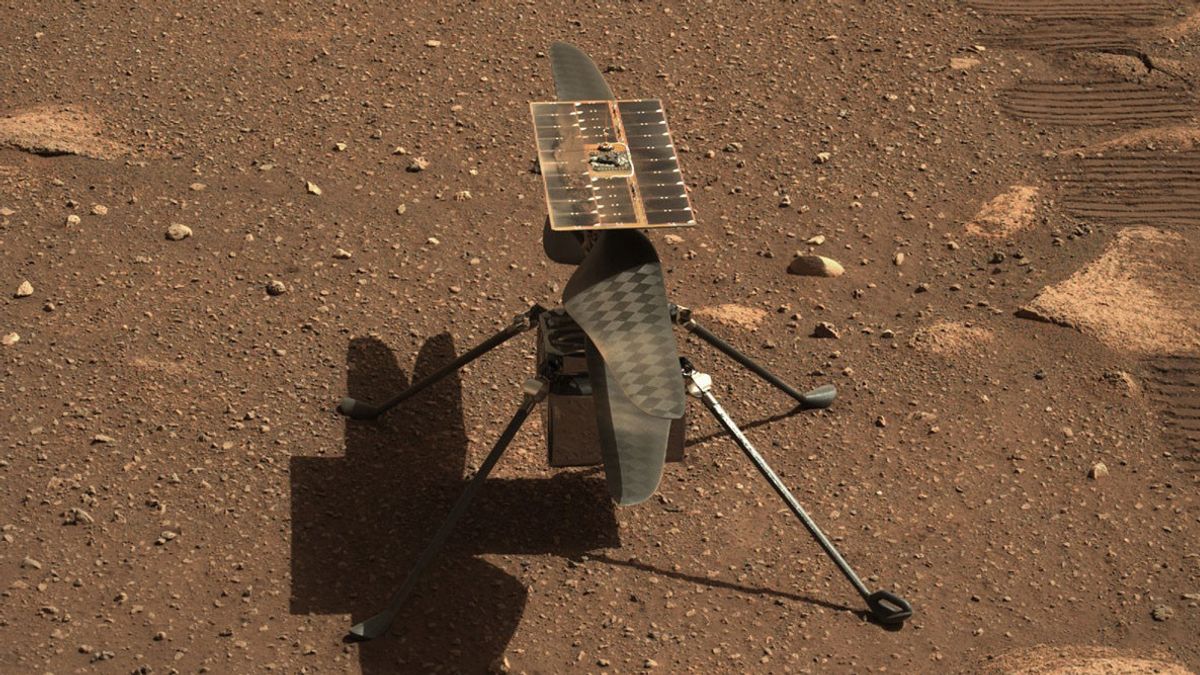JAKARTA - NASA's Ingenuity recently suffered from winter conditions and dust on Mars. As a result, the helicopter stopped operating and had to fight for survival.
The small helicopter, which has made 28 flights, has caught the world's attention with its exploration of Mars which was much more successful than predicted.
Unfortunately, due to the changing seasons on Mars, and more dust in the atmosphere, it causes problems for Ingenuity and threatens its future. The dust settles on the helicopter's solar panels, reducing the amount of power it can collect from the Sun.
Due to a power shortage, communication to Ingenuity was cut off and the helicopter's internal clock had to be reset. That meant, he also missed checking in with the Perseverance rover.
Ingenuity Team Leader Teddy Tzanetos explained, Ingenuity will experience a continuous power shortage throughout the Martian winter, which lasts until September or October.
"Challenges like these are to be expected: After hundreds of soles and dozens of flights beyond the originally planned five flights, the solar-powered helicopter is on uncharted terrain," said Tzanetos.
“We are now operating well beyond the limits of our original design. Historically, Mars has been very challenging for spacecraft (especially solar-powered spacecraft). Every sole can be the last of Ingenuity."
SEE ALSO:
Launching Digital Trends, Monday, May 30, indeed, the main threat to Ingenuity is the cold. The heaters that keep Ingenuity warm at night consume a lot of power, and as the nights get colder, they are needed more.
But with less power, Ingenuity can no longer run its heaters all night, so some of its components will drop below standard temperatures at times. It will damage the hardware over time, but it's hard to predict how long the components will last.
Now, the team is prioritizing getting all the data out of Ingenuity and copying it to the helicopter base station. The goal is to ensure that there will be as much data stored as possible. Then they wanted to keep Ingenuity flying as long as possible.
They plan to conduct a rotor rotation test before the flight begins, to check that everything is working and not damaged by the cold temperatures. If the trials look good, they will be able to resume the 29th flight as planned in the next few days.
Every day, the team and Ingenuity will communicate by contacting it when it most likely has sufficient power to try to boot, in a process called search activity.
Where teams can reset Ingenuity's onboard hours and schedule any activity for the day, to take advantage of their strengths.
“All downlinked telemetry so far indicates that Ingenuity is healthy, with no signs of damage from the overnight cold cycle. This morning's search followed by night activities is our new habit for the near future," said Tzanetos.
The English, Chinese, Japanese, Arabic, and French versions are automatically generated by the AI. So there may still be inaccuracies in translating, please always see Indonesian as our main language. (system supported by DigitalSiber.id)










